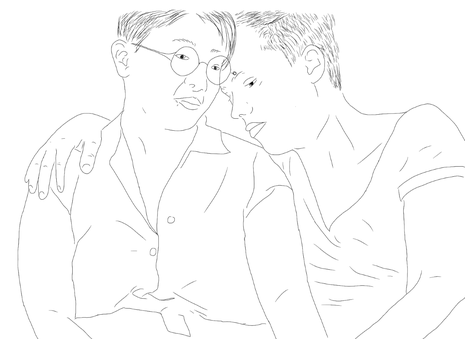

Inter* Health
Intersex is a term used for a variety of conditions in which a person is born with a reproductive or sexual anatomy that does not easily characterized as male or female.
For example, a person might be born appearing to be female on the outside, but having mostly male-typical anatomy on the inside. Or a person may be born with genitals that seem to be in-between the usual male and female types—for example, a girl may be born with a noticeably large clitoris, or lacking a vaginal opening, or a boy may be born with a notably small penis, or with a scrotum that is divided so that it has formed more like labia. Or a person may be born with mosaic genetics, so that some of their cells have XX chromosomes and some of them have XY. They are many different variants like Intersex people with Frasier Syndrome which affects skin development or intersex people with Klinefelter Syndrome with an extra X chromosome (XXY).
It is estimated that 8 000 to 10 000 intersex people live in Germany. Affected associations assume 120,000 persons. One in 5,000 newborns is can not be clearly classified as "male" or "female" due to physical characteristics.
General Issues
Mental Health
Since the late 1950s, doctors routinely used surgery and hormone treatments to make intersex babies more closely resemble the sex assigned by the attending physicians. Many children have more than one surgery.
Many intersex people were not aware that they were born intersex until they became teenagers. Sometimes the physical changes they underwent during puberty did not match the sex in which they had been raised, which could be very confusing. In the 1990s intersex adults began to speak out against surgery and hormone treatment on children because such interventions caused them emotional trauma and physical harm. For many it is difficult to find who they really are when theye were raised in a specific gender but their bodies shows a totally different gender. This can cause depression and feelings of helplessness due to feeling alone and not misderstood.
Physical Health
Some surgeries, such as the removal of testes or ovaries, have irreversible effects on the fertility of intersex people. Surgery on the genitals of intersex people often removes sexual nerve tissue, impairing their ability to enjoy a healthy sex life. Many intersex women are not sexually active and report difficulties with penetrative sex and/or a lack of sexual pleasure, which may be the result of surgical interventions during childhood.
Here is a Story of a woman who was born intersex*:
„A 25 year old Persian woman is referred to you by the urology clinic. She was recently diagnosed with 5-alpha-reductase deficiency. At birth in Iran, she was assigned female sex despite a slightly enlarged clitoris, and parents did not pursue any further medical evaluation. She was a tomboy growing up and always felt there was something wrong with her body and her gender. In college she was very disturbed by her erotic attraction to a female classmate because homosexuality is condemned in Islam. Since learning her diagnosis she believes that the presence of internal testes means that she is really a man. However, she is struggling to come to terms with how to transition to being a male and whether this is compatible with her muslim faith and her community's values.“
So a lot people deal with such issues. Do you feel a part of it but don't know where you can get help?
Here are some intersex associations and health care providers for you